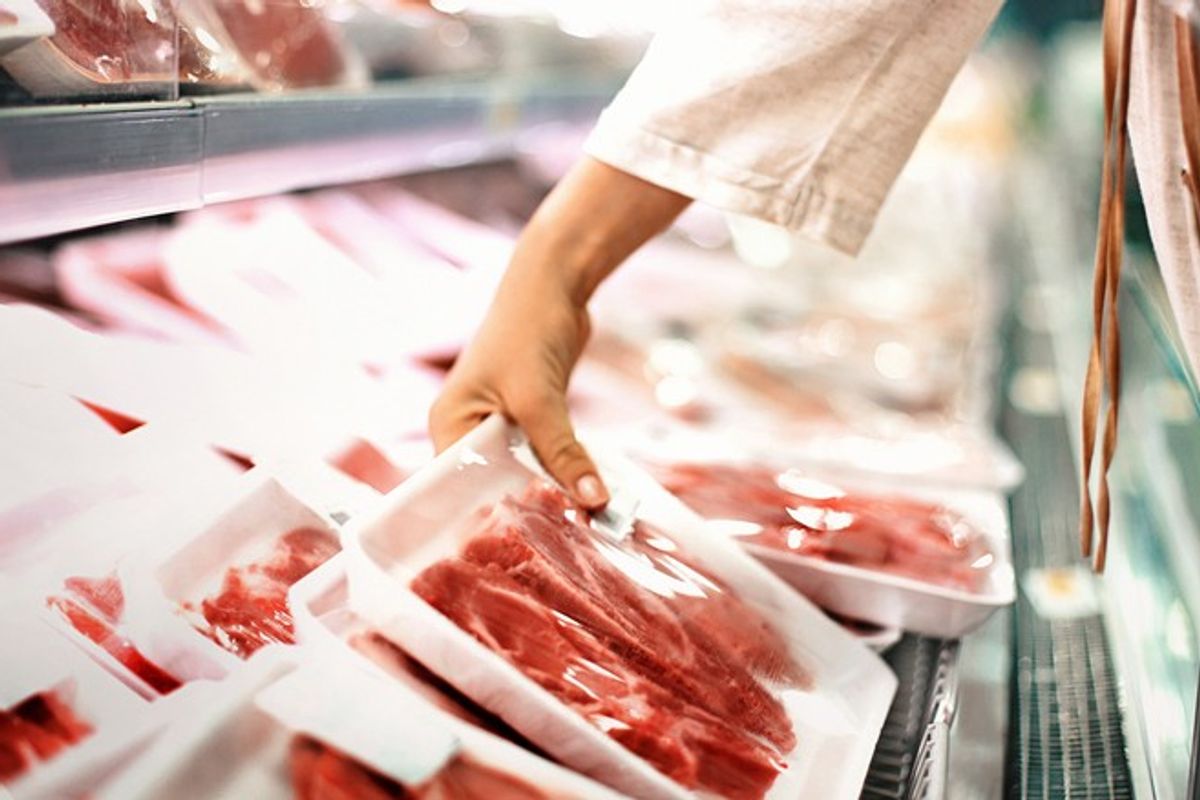Red meat and products in the UK may carry climate impact labels soon in an attempt to deter people from choosing them.
According to a recent study, climate impact labels on foods such as red meat are an effective way to get people to stop choosing options that negatively affect the planet. The clinical trial, published in the journal Jama Network Open, has found that consumers respond well to climate labelling on their foods.
Participants in the study were shown a fast food menu and prompted to select one item they would like to order for dinner. Participants were randomised to view menus with one of three labels- a quick response code label on all items (control group); green low–climate impact label on chicken, fish or vegetarian items (positive framing); or red high–climate impact label on red meat items (negative framing).
Compared with participants in the control group, 23.5 per cent more participants selected a sustainable menu item when menus displayed high–climate impact labels and 9.9 per cent more participants selected a sustainable menu item when menus displayed low–climate impact labels. Across experimental conditions, participants who selected a sustainable item rated their order as healthier than those who selected an unsustainable item, according to a mean perceived healthfulness score, The Guardian reported.
Policymakers in the country have been debating how to get people to make less carbon-heavy food choices. Henry Dimbleby, the government’s food tsar, recently said it was politically impossible for a government to tell people to stop eating as much meat.
About 85 per cent of agricultural land in England is used as grazing pasture for animals such as cows or to grow food which is then fed to livestock. Dimbleby believes a 30 per cent meat reduction over 10 years is required for land to be used sustainably in England, while Greenpeace argues for a 70 per cent reduction.


